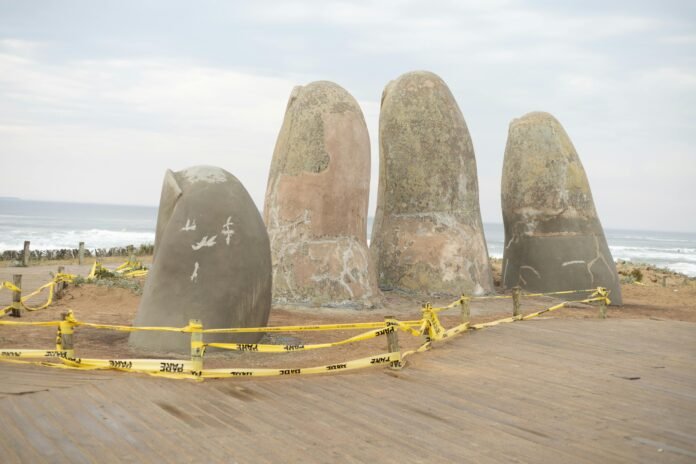Suriname, like many smaller nations, does not have specialized cancer hospitals comparable to those in larger countries. However, several medical facilities provide essential cancer care services such as diagnosis, chemotherapy, and screenings. While options are limited, patients in Suriname still have access to critical medical support through a network of hospitals and healthcare organizations. For more advanced treatments such as radiotherapy, many patients must seek care abroad. This article explores the key institutions involved in cancer care in Suriname, their specialties, and the challenges that patients face.
Key Healthcare Facilities Providing Cancer Care in Suriname
1. Academic Hospital Paramaribo
- Location: Paramaribo
- Specialty: General medical services, including aspects of cancer care.
- Role in Cancer Treatment: The largest and most advanced hospital in Suriname, the Academic Hospital Paramaribo (AZP), plays a vital role in diagnosing and managing cancer cases. While it does not have a dedicated oncology center, it provides essential chemotherapy and diagnostic services. The hospital also collaborates with international medical institutions to improve cancer care.
View this post on Instagram
2. Sint Vincentius Hospital
- Location: Paramaribo
- Specialty: General medical services.
- Role in Cancer Treatment: As one of the major hospitals in Paramaribo, Sint Vincentius Hospital offers diagnostic services such as biopsies and imaging. It also provides chemotherapy treatments and supportive care for cancer patients. However, specialized oncology services remain limited.
View this post on Instagram
3. Regional Hospitals (Saramacca, Coronie, and Others)
- Location: Various districts in Suriname.
- Specialty: Primary healthcare and limited secondary care.
- Role in Cancer Treatment: These hospitals offer basic medical services but do not specialize in cancer treatment. They play a crucial role in early detection and referrals to larger hospitals in Paramaribo. Patients from rural areas often have to travel long distances to receive specialized care.
4. Medische Zending (Medical Mission)
- Specialty: Community-based healthcare with a focus on preventive care.
- Role in Cancer Treatment: This organization provides health services to remote communities, focusing on prevention and early detection. With support from the Pan American Health Organization (PAHO), Medische Zending conducts cervical and breast cancer screening programs. Raising awareness and facilitating early detection are crucial in improving cancer outcomes in Suriname.
View this post on Instagram
5. Stichting Lobi (Love Foundation)
- Specialty: Cancer awareness and screening projects.
- Role in Cancer Treatment: Stichting Lobi is dedicated to promoting sexual and reproductive health. It plays a significant role in cervical and breast cancer screening campaigns. Early detection through these programs increases the chances of successful treatment.
View this post on Instagram
Challenges in Cancer Care in Suriname
1. Limited Access to Specialized Treatment
Suriname lacks a dedicated oncology hospital with comprehensive cancer treatment options. While facilities like Academic Hospital Paramaribo and Sint Vincentius Hospital offer basic oncology services, there is no local access to advanced treatments such as radiotherapy. Patients requiring these treatments often have to seek care in neighboring countries like the Netherlands, Colombia, or Brazil.
2. Shortage of Oncology Specialists
A significant challenge in Suriname’s healthcare system is the limited number of oncologists and specialized medical staff. The absence of radiation oncologists, surgical oncologists, and specialized cancer nurses affects the quality and availability of care. The country relies on visiting specialists and international partnerships to fill this gap.
3. Financial Barriers to Treatment
The cost of cancer treatment is a significant burden for many Surinamese patients. Chemotherapy drugs and diagnostic tests can be expensive, and those who need treatment abroad face high travel and accommodation costs. While the government and some non-profit organizations provide financial assistance, many patients struggle to afford comprehensive care.
4. Delays in Diagnosis and Treatment
Late-stage cancer diagnoses are common in Suriname due to limited screening programs and lack of awareness. Many patients only seek medical attention when symptoms become severe, reducing the chances of successful treatment. Increasing education and accessibility to screening services is essential for early detection.
5. Lack of a National Cancer Registry
Accurate data on cancer incidence, mortality rates, and treatment outcomes are crucial for improving healthcare planning. Suriname does not have a well-established national cancer registry, making it difficult to assess trends, allocate resources, and develop effective cancer control policies.
Opportunities for Improving Cancer Care in Suriname
Despite these challenges, there are several ways to improve cancer care in Suriname:
1. Strengthening Local Cancer Treatment Facilities
Investing in infrastructure to establish a dedicated oncology center would be a significant step forward. This facility could offer radiotherapy, immunotherapy, and specialized surgeries, reducing the need for patients to travel abroad.
2. Expanding Screening and Early Detection Programs
Increasing public awareness about cancer risks and expanding screening programs for breast, cervical, and colorectal cancer can lead to earlier diagnoses and better treatment outcomes. Collaborations with international health organizations can help fund and implement these programs effectively.
3. Training and Retaining Oncology Specialists
Encouraging local medical professionals to specialize in oncology through scholarships and training programs can address the shortage of specialists. Establishing partnerships with universities and hospitals abroad for exchange programs can also enhance local expertise.
4. Improving Financial Assistance for Cancer Patients
Expanding government subsidies and working with non-profit organizations to provide financial aid can help patients afford treatment. Establishing agreements with regional healthcare systems to offer subsidized care abroad can also be beneficial.
5. Developing a National Cancer Registry
Implementing a cancer registry would provide valuable data for healthcare policymakers, researchers, and medical professionals. It would enable better tracking of cancer trends and help in designing effective prevention and treatment strategies.
Conclusion
Suriname faces significant challenges in providing specialized cancer care. However, the country has a strong foundation of general healthcare facilities and community-based initiatives that support cancer prevention and early detection. Investing in specialized treatment, expanding screening programs, and training medical professionals can significantly improve cancer care services.
While many patients currently need to travel abroad for advanced treatments, strategic investments in local healthcare infrastructure can change this reality. Strengthening Suriname’s oncology capabilities is not just a healthcare necessity but also a humanitarian priority. With coordinated efforts from the government, medical institutions, and international partners, cancer patients in Suriname can have better access to the care they need.
Top 5 Cancer Hospitals in Suriname
- Academic Hospital Paramaribo
- Sint Vincentius Hospital
- Regional Hospitals (e.g., Saramacca, Coronie)
- Medische Zending (Medical Mission)
- Stichting Lobi (Love Foundation)
References:
- 1.Pan American Health Organization.(2020).CervicalandBreastCancerProjectsinSurinameshowPromise.Retrievedfromhttps://www.paho.org/en/news/11-2-2020-cervical-and-breast-cancer-projects-suriname-show-promise
- 2.Princess Máxima Center.(2024).PartnershipwithAcademicHospitalParamaribo.Retrievedfromhttps://www.prinsesmaximacentrum.nl/en/news-events/news/partnership-with-academic-hospital-paramaribo
- 3.International Cancer Control Partnership Portal.(2019).NationalCancerControlPlanSuriname2019-2028.Retrievedfromhttps://www.iccp-portal.org/system/files/plans/SUR_B5_s21_NCCP%20Suriname%202019-2028.pdf
- 4.Pan American Health Organization.(2023).NationalMeetingonChildhoodCancerinSuriname:CureAllAmericas.Retrievedfromhttps://www.paho.org/en/news/12-5-2023-national-meeting-childhood-cancer-suriname-cureall-americas
- 5.FCDO.(n.d.).Suriname:medicalfacilities.ListofmedicalfacilitiesinSuriname.Retrievedfromhttps://www.gov.uk/government/publications/suriname-list-of-list-of-medical-facilities-practioners/list-of-medical-facilities-in-suriname


